By Allison Kozicharow; Edited by Elizabeth Fine
Introduction
2023 was remarkable year for WiRED International. We successfully strengthened our mission to improve the health of people living in underserved or conflict-driven regions through our education and training programs.
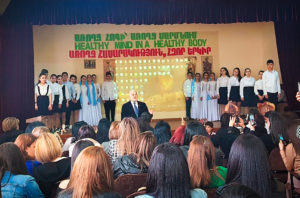 This year WiRED:
This year WiRED:
- Doubled our paraprofessional team of community health workers (CHWs) in Kisumu, Kenya, and launched the Hodge Health Screening Clinics (HHSCs)
- Completed the development of a first aid critical care (FACC) addition to our CHW Training Curriculum
- Released an extensive community health and FACC training package in the Ukrainian language to assist people targeted by the Russia’s invasion
- Expanded our partnerships with NGOs and academic institutions in various countries
WiRED’s Community Health Worker and Hodge Health Screening Clinics Programs
Several years ago, the World Health Organization (WHO) called for the need to train CHWs in basic health care to offset the inequities found in underserved areas of the world where medical professionals are tragically few.
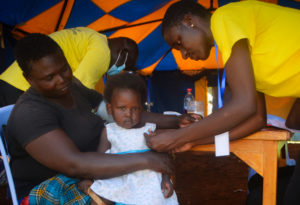 In 2021, after two years of research and development, WiRED launched our own CHW curriculum, based on WHO guidance. Our first CHW training group was in Kisumu, Kenya. To earn a certificate, CHWs take a 200-hour training course covering basic health issues, clinical issues and health communication and are required to complete a continuing medical education course yearly to keep their skills sharp and to expand their expertise.
In 2021, after two years of research and development, WiRED launched our own CHW curriculum, based on WHO guidance. Our first CHW training group was in Kisumu, Kenya. To earn a certificate, CHWs take a 200-hour training course covering basic health issues, clinical issues and health communication and are required to complete a continuing medical education course yearly to keep their skills sharp and to expand their expertise.
No program in WiRED’s 26-year history has helped more people with their health needs — and with minimal cost. Today the expanded Kisumu CHW team of 21 provides health services and referrals to an average of nearly 10,000 people every month!
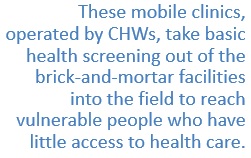 In April WiRED’s newly created HHSC program was up and running in Kisumu. These mobile clinics, operated by CHWs, take basic health screening out of the brick-and-mortar facilities into the field to reach vulnerable people who have little access to health care. WiRED has augmented the design of its HHSCs to include an extensive battery of vital sign measurements, diagnostic tests, treatments and training programs. These clinics have become an important component of community health in Kisumu and a key element of WiRED’s CHW program. One of the notable benefits of the HHSCs is their efficiency, allowing more low-resource communities to adopt them as a way to deliver health care.
In April WiRED’s newly created HHSC program was up and running in Kisumu. These mobile clinics, operated by CHWs, take basic health screening out of the brick-and-mortar facilities into the field to reach vulnerable people who have little access to health care. WiRED has augmented the design of its HHSCs to include an extensive battery of vital sign measurements, diagnostic tests, treatments and training programs. These clinics have become an important component of community health in Kisumu and a key element of WiRED’s CHW program. One of the notable benefits of the HHSCs is their efficiency, allowing more low-resource communities to adopt them as a way to deliver health care.
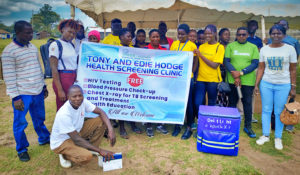 The First Aid Critical Care Curriculum
The First Aid Critical Care Curriculum
WiRED has long believed in the importance of first aid training in low-resource communities. We developed the FACC as a vital addition to our CHW Basic Training Curriculum, where we adapted the U.S. Military’s First Aid field training for civilian use in a CHW setting. All CHWs must take this 40-hour addition now integrated into the core training block. As paraprofessionals they learn how to administer urgent and immediate lifesaving measures that can be performed on injured people as well as treating simple emergencies such as bites and stings, cuts and scrapes and burns.
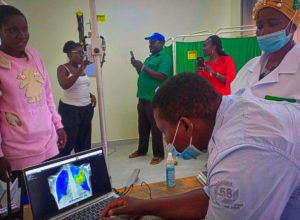 CHWs’ basic understanding of good first aid practices allows them to teach proper first aid basics to people in the communities they serve. Teaching first aid is an excellent way to encourage community members to participate in their own health.
CHWs’ basic understanding of good first aid practices allows them to teach proper first aid basics to people in the communities they serve. Teaching first aid is an excellent way to encourage community members to participate in their own health.
Health Training Package for the People of Ukraine
After Russia invaded Ukraine, WiRED studied how best to help the Ukrainian people. In response, we created a module package translated into Ukrainian containing our complete CHW Health Training Program and the new FACC material. The regular CHW curriculum addresses everyday healthcare needs and both noncommunicable and infectious diseases, while the FACC aids Ukrainian citizens in administering first aid wherever needed as they face brutal assaults on their families, homes and towns.
Now Ukrainians, in their own language, can access WiRED materials for online study and for downloading on smart devices and share them with others.
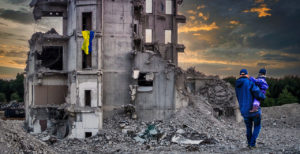 Partnerships
Partnerships
Throughout our history WiRED has always sought partners in NGOs, health ministries, academic institutions and hospitals. Partnerships this year include our long-standing collaboration with Sister Bernadette Nealon and the continuation of the Sunshine-Mitzvah Fund in Kenya; close ties with WiRED-Armenia and other NGOs in Armenia; and a new association with the Vulnerable Empowerment Foundation International Liberia Inc. in Liberia.
LOOKING AHEAD TO 2024
As we begin our 27th year of operation, WiRED will continue to grow our CHW and HHSC programs. These sustainable and cost-effective programs exemplify WiRED’s philosophy of training local people to care for their own communities. WiRED creates innovative, cost-free programs and the technology to help train people to take responsibility for their own health.
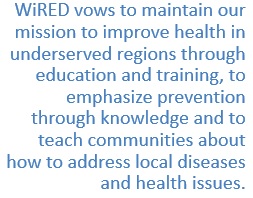 This year WiRED plans to:
This year WiRED plans to:
- continue to support Ukraine through the WiRED health training package
- launch a CHW program in Armenia
- complete the development of a First Aid Handbook for smart devices
- pursue additional partnerships with NGOs and academic institutions
- report monthly on CHW deployment, profiling CHWs and featuring CHW testimonials and stories from the field
- expand the CHW team in Liberia
- continue to explore ways of using cutting edge technology to deliver and enhance our programs
- amplify the adoption of the HHSC program in low-resource countries in Africa
- track climate change and promote the concept of One Health.
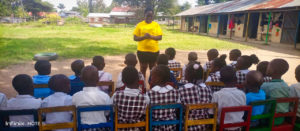 WiRED vows to maintain our mission to improve health in underserved regions through education and training, to emphasize prevention through knowledge and to teach communities about how to address local diseases and health issues. We stress good diet, hygiene and sanitation as basic tools in maintaining good community health.
WiRED vows to maintain our mission to improve health in underserved regions through education and training, to emphasize prevention through knowledge and to teach communities about how to address local diseases and health issues. We stress good diet, hygiene and sanitation as basic tools in maintaining good community health.
Last chance to donate to WiRED in 2023!
Please keep in mind that for 26 years WiRED has used your donations wisely with 95% of our funds going directly to our programs. With your help we will continue to provide vital medical information free of charge to underserved communities globally. Your donation is tax-deductible.
Here’s how to donate:
Donate online via PayPal or credit card at the WiRED here: wiredinternational.org/donate
Send a check to: WiRED International, P.O. Box 371132, Montara, CA 94037


